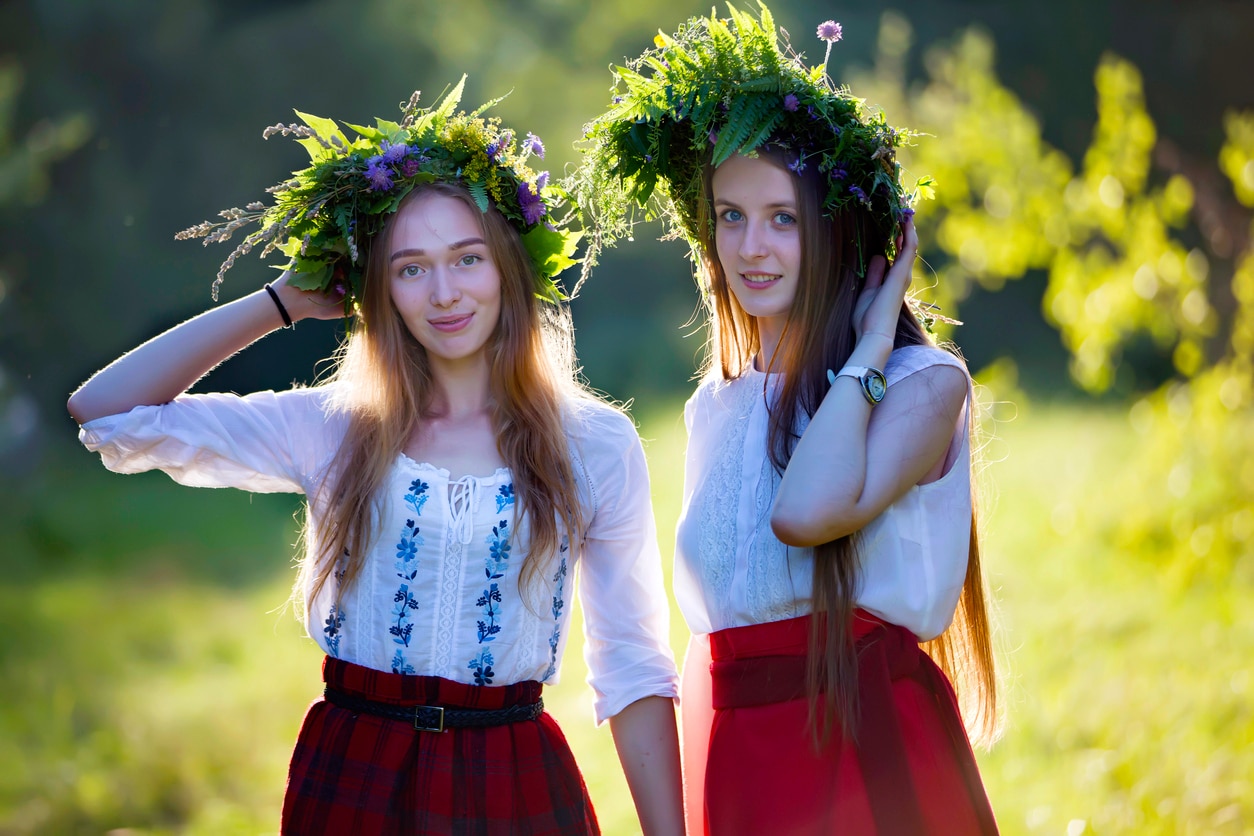In this text, Tajik blogger Roxana Burkhanova describes, in Russian, the history and current status of Christianity and paganism in Russia as well as touches upon issues of religious freedom. While Orthodox Christianity is the most popular and politically powerful religion in Russia, pagan traditions still survive and other Christian faiths exist.
This is part of a larger series of intermediate Russian lessons known as Моя Россия, in which Roxana explores minority populations in Russia as well as economic and demographic issues there. Моя Россия builds upon Olga’s Blog, another set of intermediate Russian lessons that give shorter texts that focus more on daily life and cultural issues. All of these lessons have been sponsored by SRAS, an organization that encourages the study of Eurasia from abroad through free resources and offers study abroad programs in Eurasia.
We will start with a brief synopsis in English before presenting the Russian text. As the Russian text was originally written in 2016, we have also provided a small update in English to the information presented there. All bold words and phrases have annotation below. Red words and phrases indicate the subject of this blog entry’s grammar lesson. Asterisks indicate slang.
Christianity and Paganism in Russia – Synopsis and Update in English
Many Russians believe that being ethnically Russian also makes one Russian Orthodox by extension. For these Russians, it does not matter whether one knows Orthodox dogma or if one only attends church once a year on Easter, an ethnic Russian can still count oneself as Russian Orthodox.
Although Russian Orthodoxy is a large part of Russia’s cultural heritage, Russia is officially a secular state according to its constitution and legislatively recognizes four “traditional” religions equally: Orthodoxy, Islam, Buddhism, and Judaism. Russia’s law against offending religious beliefs, however, has been used almost exclusively against those offending Orthodoxy (with a few cases against those offending Islam).
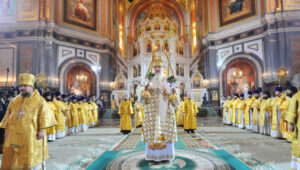
Paganism can also still be seen in Russia. When Christianity arrived, it merged with paganism in popular belief and many pagan customs are still kept by Russians – the most obvious and visible of these being the celebrations of Maslenitsa. Today, there is also a small but strong movement of neopaganism often referred to by its practitioners as “rodnoveri,” or “homeland belief.” Most of these pagans equate paganism with the true roots of Russia and see practicing it an expression of patriotism. There are also many shamanistic faiths still practiced by the indigenous peoples of Siberia.
Other Christian faiths have also long existed in Russia, including Catholicism, Old Believers, and Anglicanism. Many faiths are hindered by strict laws which prohibit missionary work, which is central to some beliefs such as Mormonism, but which has long been prohibited in Russia going back to the tsarist empire.
The Russian text below was originally published in 2016 and some references are now dated. For instance, Mormon missionaries were pulled out of Russia with the invasion of Ukraine in 2022. The text also references Ukrainian and Russian co-sponsored pagan events, which have now also been curtailed due to travel restrictions and animosity between the two countries.
Религия в России – Христианство и язычество
Россия – многонациональное и многоконфессиональное государство. Россия – светское государство, а конституция РФ гарантирует «свободу совести, свободу вероисповедания». Федеральный закон «О свободе совести и о религиозных объединениях» 1997 года признает особую роль православия в России, а также уважает «христианство, ислам, буддизм, иудаизм и другие религии», что ставит все религии в равное положение перед законом. Однако тот факт, что христианство, ислам, буддизм и иудаизм названы поименно, дает повод многим полагать, что эти религии имеют особый статус и по-особому защищены законом РФ, тогда как остальные религии закон оставляет зарамками такого особого статуса и защиты.
Возрождение языческих верований в России
Изначально на Руси еще до прихода христианства существовала своя система верований. Широко было распространено славянское язычество. Его отличительными чертами были многобожие, одухотворение природы, культ предков, вера в богов, которые постоянно участвовали в жизни обычных людей. Вера в богов у славян была непоколебима даже перед лицом наступающего христианства. До сих пор многие места в России хранят память о древних языческих идолах и капищах (святилищах). Даже когда христианство было принято населением, язычество сильно повлияло на него, а сама вера в сверхъестественные силы и мифические существа никуда не делась.
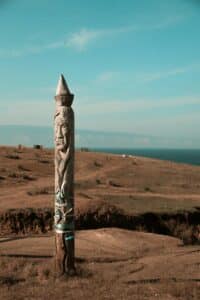
В настоящее время языческие обряды и традиции вновь актуальны, так как появилось «неоязычество» – новые или реконструированные древние языческие учения. В России наиболее популярно родноверие, посвященное возрождению славянских дохристианских верований. Общины родноверов собираются вместе и проводят масштабные мероприятия. Например, они собираются на празднование Ивана Купалы под городом Малоярославец. Причем в съездах принимают участие также общины из Украины и Белоруссии. Иным примером сохранения дохристианских обычаев в России является праздник Масленицы. Масленица – это очень веселый праздник с переодеваниями, увеселениями, играми.
Помимо язычества, на территории России были и остаются другие древние религии. С присоединением новых восточных территорий Российским государством в 16-м веке, под его влияние попали этнические группы Сибири и Дальнего востока. Исторически эти этнические меньшинства имели свою культуру и свои традиционные языческие религии. Например, одной из до сих пор широко распространенных религий в Сибири и на Дальнем востоке является шаманизм. Шаманизм делит мир на обычный и сакральный, самое главное лицо в шаманизме – шаман, избранный посредник между двумя мирами. Стоит отметить, что слово «шаман» происходит именно из этих районов, теперь же оно известно на весь мир. В настоящее время известны шаманские школы в Якутии, Туве, Хакасии и Алтае.
Христианизация Руси и роль православия в современной России
Когда началось присоединение Сибири к Руси с похода атамана Ермака в 1581-1585 годах, Русь уже почти 600 лет была христианской. Ведь история христианства в России начинается с 988 года, года крещения Руси князем Владимиром Святым. Именно тогда христианство стало официальной религией Древнерусского государства. В целом в досоветские годы церковь оставалась крупнейшей и самой влиятельной религиозной организацией в стране, у нее было много привилегий, так как она была государственной церковью. В начале 20-го века православие оберегалось законом: переход из другой религии в православие поощрялся, а вот перейти из православия в любую другую религию было запрещено законом.
Православие – основная религия этнических русских. Более того, многие из них считают православие своим культурным достоянием. Многие люди считают себя православными, хотя и почти не ходят в церковь. Вести учет православных верующих в таких условиях почти невозможно. Как понять, кого вообще можно считать православным: всех, кто считает себя таковым, или только тех, кто ходит в церковь?
Правовое положение православия и религиозные меньшинства
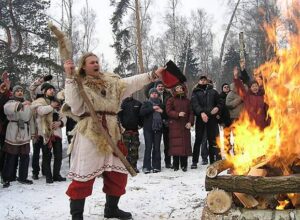
Так как особое положение православия в России признано законом, то Русская православная церковь имеет много привилегий, недоступных другим религиозным институтам. Например, примерно двум миллионам мусульман Москвы приходится тесниться в четырех московских мечетях без возможности построить новые мечети, когда как православные храмы вырастают повсюду какгрибы. Хотя порой строительство православных храмов происходит в рамках восстановления исторического наследия, некоторые из новостроев покушаются на такие общественно-важные пространства, как площади и парки.
Отдельно стоит поговорить о непростом положении других христианских меньшинств. Например, многие cвидетели Иеговы стали жертвами борьбы с экстремизмом, в результате чего был закрыт ряд периодических изданий и распущен ряд религиозных общин. Чаще всего российские суды называли их виновными в разжигании религиозной розни; Европейский суд по правам человека в Страсбурге как минимум один раз признал подобные действия российского суда незаконными.
Проблемы миссионерской деятельности в России
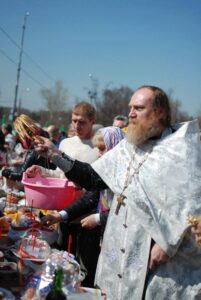
Другое религиозное христианское меньшинство в России – это мормоны. Как и свидетели Иеговы, мормонам очень мешают российские законы, сильно ограничивающие миссионерскую деятельность. Например, за один 2015 год в регионах России было создано много законов, ограничивающих права миссионеров (на подобии закона Архангельской области «О миссионерской деятельности на территории Архангельской области», принятого 21 октября 2015 года). Но, в отличие от свидетелей Иеговы, мормоны нашли выход из этой ситуации: их проповеди передаются из уст в уста методом сарафанного радио или в виде бесплатных уроков английского или русского языка. Многие правозащитники жаловались на то, что ограничение права на миссионерскую деятельность направлено в первую очередь против иностранных религий и для защиты доминирующего положения Русской православной церкви.
Как видите, религиозная история России достаточно сложна и запутана. И это я еще не затронула историю русского ислама, буддизма и иудаизма, которые достаточно широко распространены в России и уходят корнями в дохристианский период. Не поговорили мы и о советской политике государственного атеизма, оказавшей влияние на любую религиозную жизнь в СССР. Но я обязательно расскажу обо всем об этом в следующих уроках.
Vocabulary and Cultural Annotations
Многонациональный – multiethnic
Многоконфессиональный – multireligious
Светский – secular
РФ (Российская Федерация) – Russian Federation
Совесть – Conscience; thought
Свобода совести – freedom of thought
Вероисповедание – religion
Верование – (religious) belief
За рамками – outside of
Славянское язычество – Slavic paganism
Черта – trait; feature (note that this word has no relation to “чёрт,” or “devil).
Культ предков – ancestor worship
Непоколебим – steadfast; unshakable.
Идол – a sculpture depicting a god
Капище (святилище) – pagan temple
Обряды – ceremony, rite, ritual
Неоязычество – Modern Paganism
Иван Купала – Kupala Night/Ivan Kupala Day is celebrated in Belarus, Russia, Ukraine, parts of Poland and some places in the Baltic countries on the night between 6 and 7 July and is related to summer solstice. It includes the number of Slavic rituals; it’s a day of mischief and pranks (especially related to water as water is connected to purity and fertility).
Масленица – Maslenitsa; also known as Butter Week, Crepe Week, Cheesefare week. It is an Eastern Slavic religious and folk holiday, celebrated during the last week before Great Lent, that is, the eighth week before Eastern Orthodox Pascha (Easter). Maslenitsa corresponds to the Western Christian Carnival.
Шаманизм – shamanism
Сакральный – sacred
Привеилегия – privilege
Поощрять – to incentivize
Расти как грибы (после дождя) – idiom; to mushroom, to grow quickly
Новострой – slang; newly-erected building
Периодическое издание – periodical
Свидетели Иеговы – Jehovah’s Witnesses
Разжигание религиозной розни – literally «rousing religious hatred», it’s an article in Criminal Code of Russia directed against hate crimes and often used against Christian minorities
Европейский суд по правам человека – European Court of Human Rights is a supranational or international court established by the European Convention on Human Rights
Мормоны – Mormons
Сарафанное радио – word-of-mouth (literally “sarafan radio;” the sarafan is a type of dress traditionally worn by Russian women).
Punctuation Focus: Separating Elements with Quotation Marks
Apposition is a grammatical construction in which two elements, normally noun phrases, are placed side by side, with one element serving to identify the other in a different way.
Appositions can be used to:
- show different characteristics of an object (ex.: волшебница–зима)
- define a person’s ethnicity/nationality (ex.: англичанин–гувернер)
- define the age of a person (ex.: сторож–старик)
- define a person’s profession (ex.: девушка–телефонистка)
Different proper nouns and personal names can be used in apposition (in this case they are marked with «» and don’t have the same form as a defined noun – they are not «similar»)
Ex.: ледокол «Леонид Серов»
на ледоколе «Леонид Серов»
Note that this is often used in Russia to denote business names.
Ex.: ресторан «Макдоналдс»
в ресторане «Макдоналдс»
Appositions can be singular or extended. Extended appositions can be marked with either a comma or, less often, with a dash.
You have to mark an apposition with a dash if:
– before an apposition you can use words «а именно», «то есть» without changing the meaning;
Ex.: Он очень любил эту игру – шахматы.
– the an apposition pronouncedly independent (and in the end of the sentence);
Ex.: Въехали в Ивантеевку – большое просторное село с ухоженными серебряными улицами.
– has explanatory meaning and is in the middle of the sentence (marked from both sides);
Ex.: Ясень – теплолюбивая порода – страдает от весенних заморозков.
– for clarification if it belongs to one of the similar members of a sentence (a list);
Ex.: На террасе собрались хозяин дачи, его сын – мой приятель, соседи и их дети.
Examples from Literature
Но на лице Елены в три часа дня стрелки показывали самый низкий и угнетенный час жизни – половину шестого. (М. Булгаков «Белая Гвардия»)
В воротах стоял большой стражник с пикой в руках и зорко поглядывал кругом. Кругом же творился некий вялый бедлам – пауза такая после бурного шабаша. (В. Шукшин «До третьих петухов»)
Наступили лучшие дни в году – первые дни июня. (И. Тургенев «Отцы и дети»)
You’ll Also Love
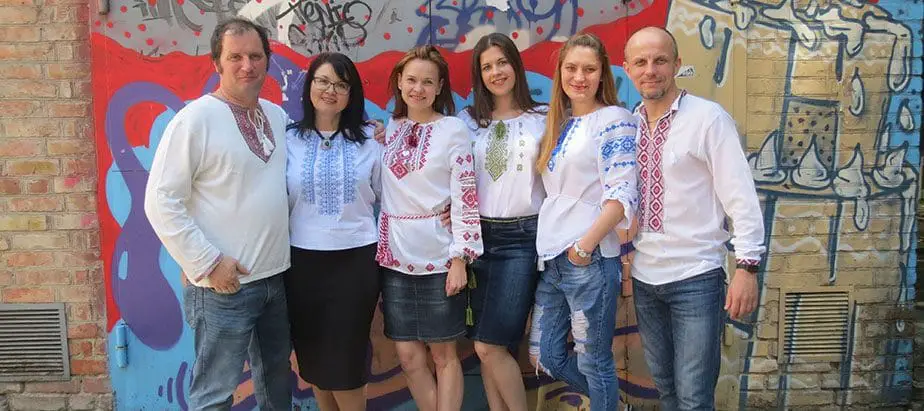
The Talking Ukrainian Phrasebook
Learn Ukrainian with this free phrasebook and its recordings made by native Ukrainian language speakers. For a deeper learning experience, see these online and study abroad experiences from SRAS! Ukrainian is a Slavic language that is primarily spoken in Ukraine, with approximately 45 million speakers worldwide. Its roots lie in Old East Slavic language, which […]
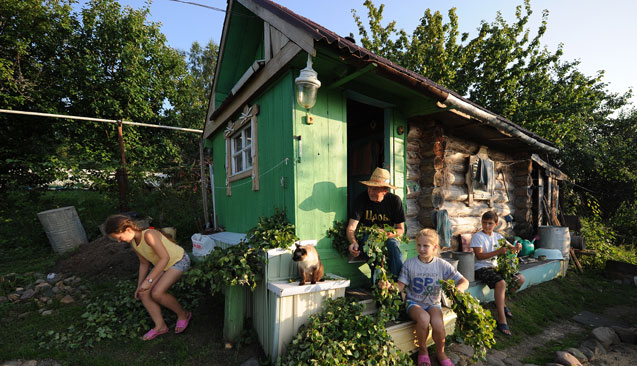
Holidays in Russian Culture: Моя Россия Blog
In this text, Tajik blogger Roxana Burkhanova describes, in Russian, the place of holidays in Russian culture. She focuses on the two major holiday seasons: the New Year’s holidays and the May Holidays. The text was originally written in 2015 and thus references times before the current war. However, the vocabulary and the general cultural […]
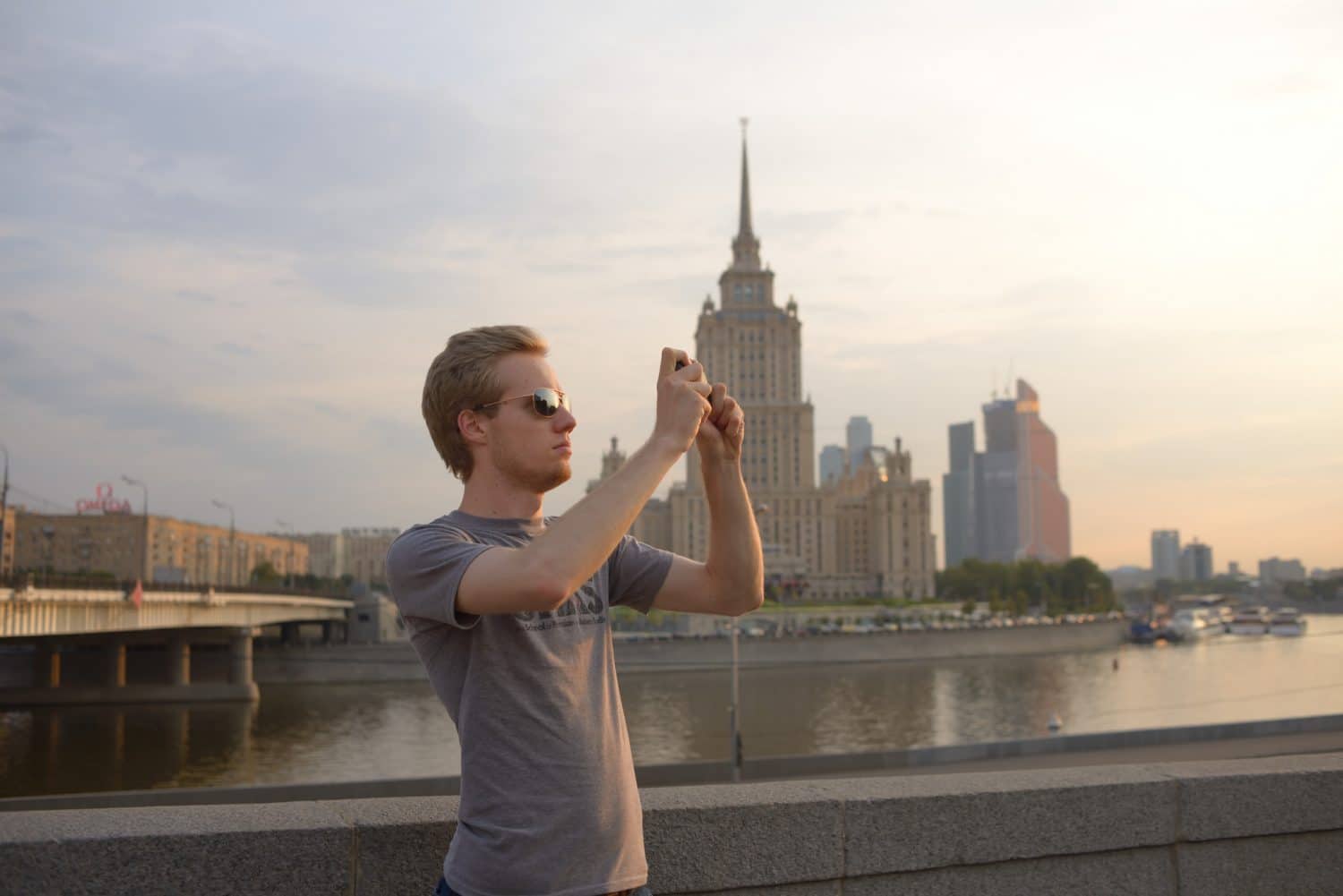
The Russian Labor Market: Regulations, Common Practices, Vocabulary, and More
This resource is intended to serve as a map for the Russian labor market both in terms of official and unofficial labor practices and with general commentary on perspectives of these labor practices as taken from both the employee and employer. We have also tried to provide, wherever possible, commentary on Russian terminology and slang […]
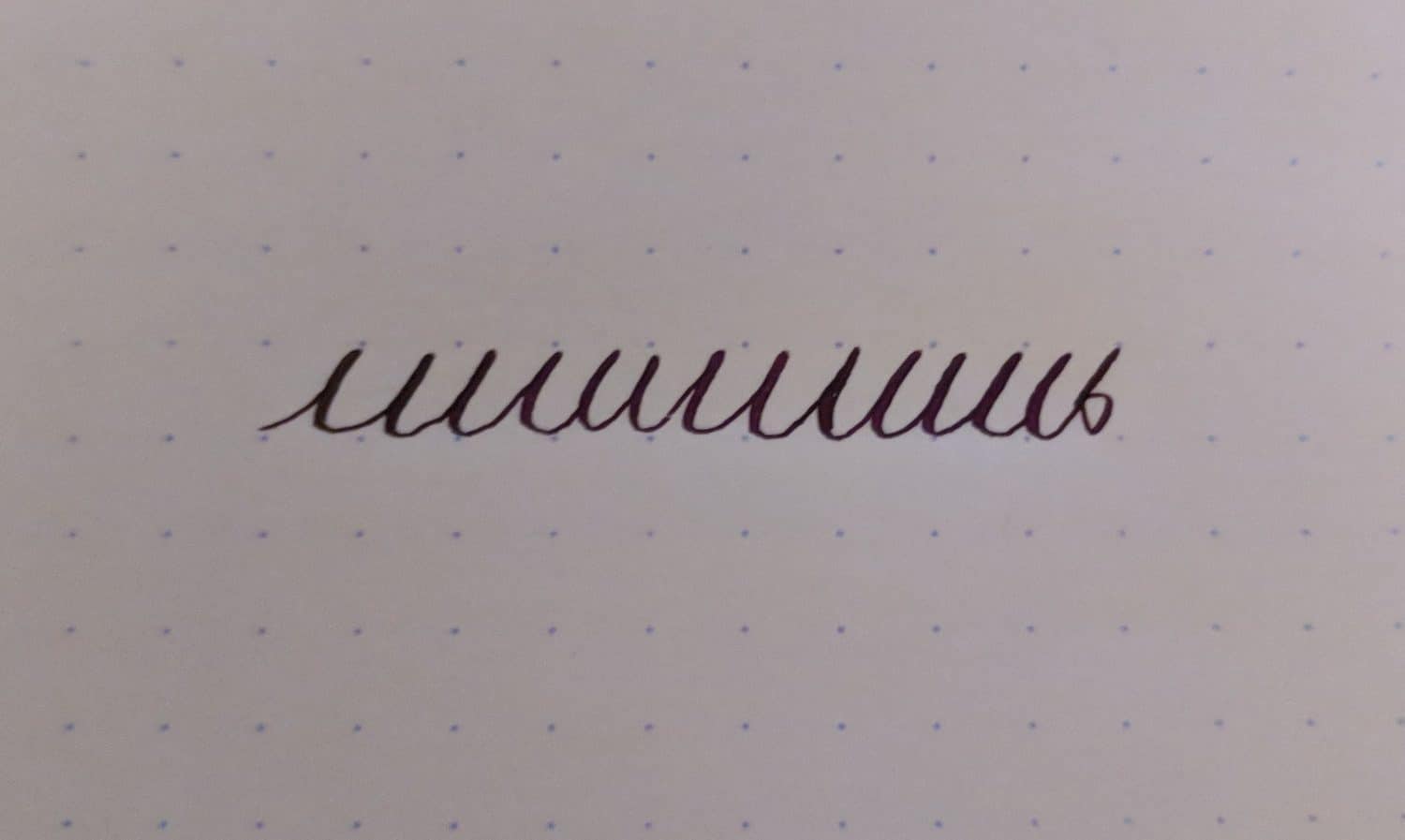
Самый лучший разговорник – The Best Phrasebook Ever
The following list of phrases are meant as educational humor. Some are just silly, some are useful, some will be understood by all, and some only by those who have spent time in Russia. Some of these have been around online as jokes for some time – others were added based on common experiences that […]

Quarantine Diaries: Психическое здоровье во время карантина
Quarantine Diaries is a series of free language lessons from SRAS. Each lesson can take a variety of forms but all focus on building intermediate and advanced vocabulary and listening skills. Read the text and familiarize yourself with the new vocabulary (you can hover over the bold Russian to reveal its English translation). Then, watch […]

